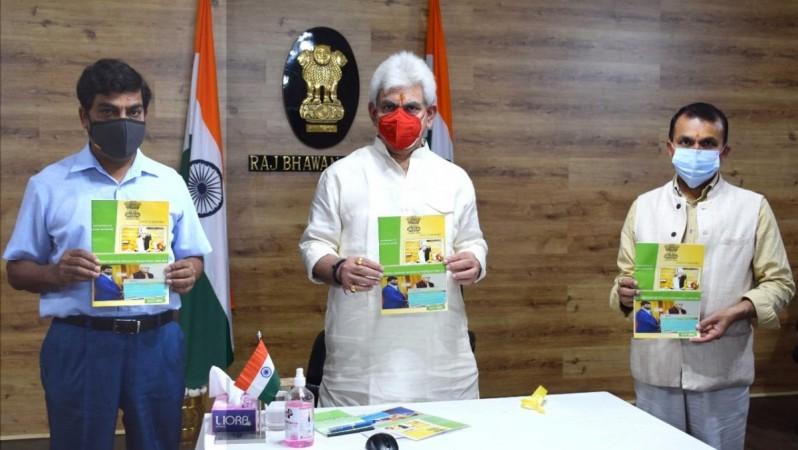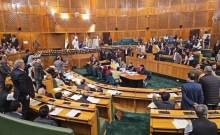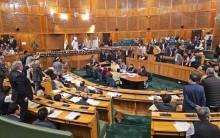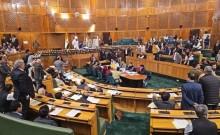Despite COVID restrictions in the initial three months, Jammu and Kashmir has recorded an increase of nearly Rs 140 crores in the Goods and Services Tax (GST) revenue collections during financial year 2020-21.
Not only GST but the excise revenue collection in the year 2020-21 is also grown at 5.36 percent despite constraints witnessed during three initial months of the financial year due to the COVID lockdown.
As per 'annual report promoting good governance' released by Lieutenant Governor, Manoj Sinha today at Jammu the gross GST revenue collections including settlement for the financial year 2020-21 in J&K stood at Rs 4,890.35 crore as against Rs 4,750.60 crore in the previous year 2019-20, thus registering a growth of 2.94 percent.

Despite COVID-related restrictions for nearly three months, the excise revenue collection in 2020-21 grew at 5.36%. Total excise revenue generated during 2020-21 stood at Rs 1353.43 crores.
Two lakh duplicate cases of PDS beneficiaries weeded out
With the introduction of the Direct Benefit Transfer (DBT) system, nearly two lakh duplicate beneficiaries, getting benefits of various schemes under the Public Distribution System (PDS), were weeded out. Furthermore, over 4.5 lakh silent beneficiaries have also been deactivated.
The government of J&K has made the electronic mode of payments mandatory without involving any cash transactions from 2020-21. Promotion of digital payment ensured transparency, timeliness, and accountability in the transaction of Government business and complete streamlining of payment systems across the Union Territory. The payment in DBT mode has also been made mandatory which has led to a great impact on timely payments to more than 80 lakh beneficiaries.

'Mumkin' scheme makes sustainable livelihood possible for youth
To empower youth, a livelihood generation scheme "Mumkin" was launched. This scheme provides sustainable livelihood to the youth of J&K. The idea behind this initiative is to provide small commercial vehicles to youth without the need for any initial investment at reasonable subsidies from both the manufacturer and the government, enabling them to earn.
4,000 projects completed during 'Back to Village' programme
Notwithstanding COVID constraints, over 4,000 new and languishing developmental projects were completed during two phases of the Back to Village programme. Under this programme more than 4,000 officers spent two days including night halt in Panchayats to bring governance at people's doorsteps. Rs 10 lakhs were provided to each Panchayat under this programme for providing basic and other amenities in villages. Sports kits costing Rs. 20,000 each were distributed in each Gram Panchayat and around 20,000 youths were identified for bank finance to start their own venture.













